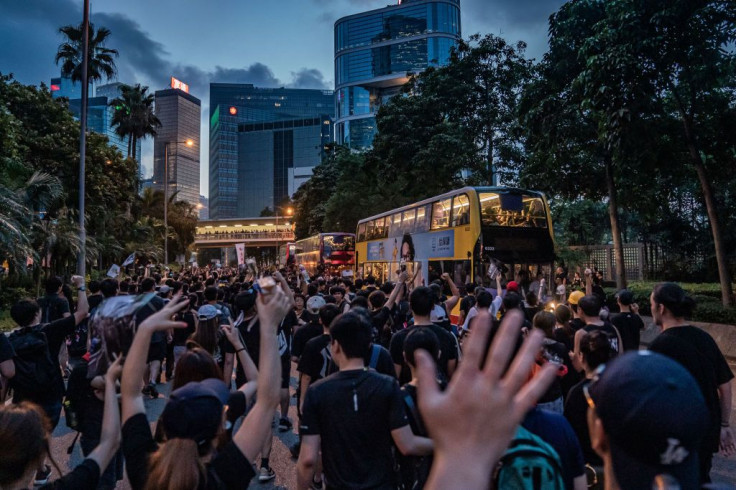Britain, China Tensions Arise Over Hong Kong Freedom As UK Support Protestors

The United Kingdom summoned China’s ambassador, Liu Xiaoming, on Wednesday to upbraid him for making “unacceptable” comments that assailed the UK’s position on the recent mass demonstrations by citizens of Hong Kong while threatening it with serious consequences.
"The FCO's Permanent Under Secretary Sir Simon McDonald told the Chinese ambassador that the comments made on UK policy towards Hong Kong by the Chinese ministry of foreign affairs spokesperson were unacceptable and inaccurate.
"The British Government's position has been set out clearly by the Foreign Secretary and other ministers."
Liu was summoned to the Foreign and Commonwealth Office (FCO), more popularly called the Foreign Office, over his outlandish comments in which he warned the UK against meddling in China's internal affairs.
Liu also blasted the UK for making “inappropriate remarks” supporting protesters in Hong Kong where more than two million citizens marched against Chinese interference in Hong Kong affairs.
"The UK government chose to stand on the wrong side: it has made inappropriate remarks not only to interfere in internal affairs of Hong Kong but also to back up the violent law-breakers," said Liu.
"I would like to reiterate that Hong Kong is China's special administrative region; it is not what it used to be under British colonial rule."
Liu especially criticized Secretary of State for Foreign and Commonwealth Affairs Jeremy Hunt and Boris Johnson (who will likely become Britain’s next prime minister) and warned them against their taking the side of Hong Kong citizens protesting against a controversial extradition bill that has since been suspended.
On Tuesday, Hunt warned China of "serious consequences" over rising tensions on the streets of Hong Kong where protestors have been at it for the past two weeks. Hunt’s warning came hours after Hong Kong riot police fired tear gas at demonstrators waving the British flag in the former British colony.
Hunt said there might be a diplomatic showdown if China refuses to honor the Sino-British Joint Declaration treaty signed by both countries in 1984 that set forth the “one country, two systems” political concept governing Hong Kong.
"The UK signed an internationally binding legal agreement in 1984 that enshrines the one country two systems rule, enshrines the basic freedoms of the people of Hong Kong and we stand foursquare behind that agreement, foursquare behind the people of Hong Kong," said Hunt on TV.
"There will be serious consequences if that internationally binding legal agreement were not to be honored."
Hunt said the UK stands behind the people of Hong Kong “in defense of the freedoms that we negotiated for them when we agreed to the handover in 1997 and we can remind everyone that we expect all countries to honor their international obligations.”
Following Hunt’s comments, Liu said he thinks the relationship between both countries "in a way has been damaged by the interference of the British Government in Hong Kong because, as I said, the fundamental principles guiding our two countries is mutual respect."
"If the British Government go further it will cause further damages, so that is why I'm calling the British Government to reflect the consequences of its words and deeds with regards to Hong Kong. I do hope the British Government will realize the consequences and refrain from further interference from further damaging the relationship,” said Liu.
On Wednesday, Johnson said he backed the people of Hong Kong "every inch of the way." He cautioned China the "one country, two systems" principle under which Hong Kong has been governed since being handed back to China by Britain in 1997 shouldn’t be cast aside.
© Copyright IBTimes 2025. All rights reserved.





















